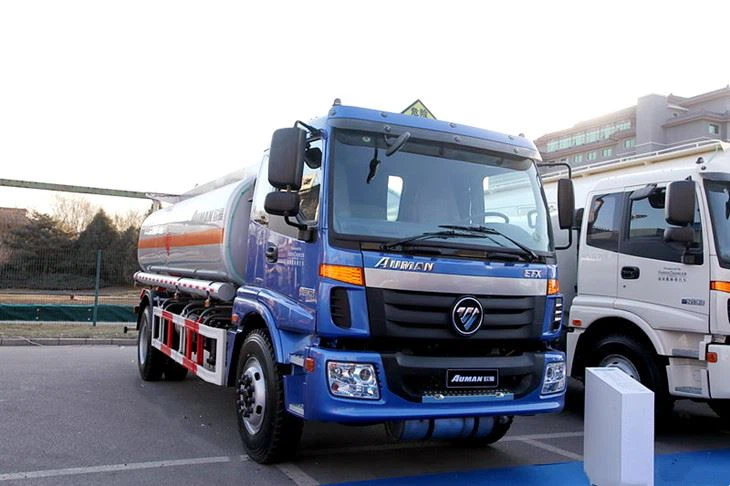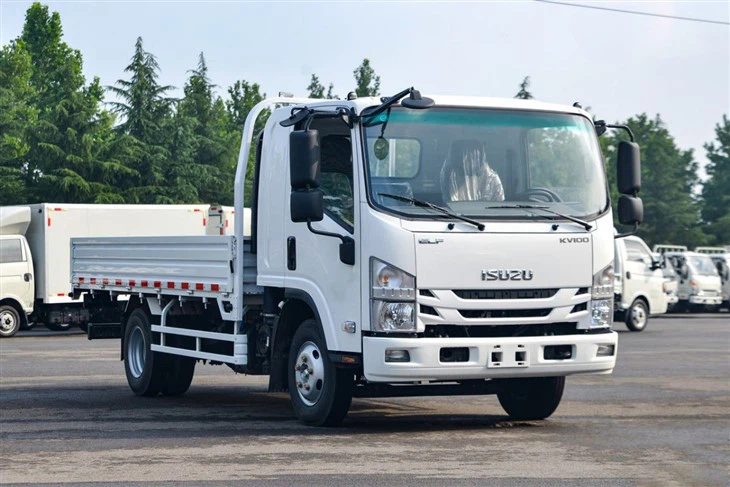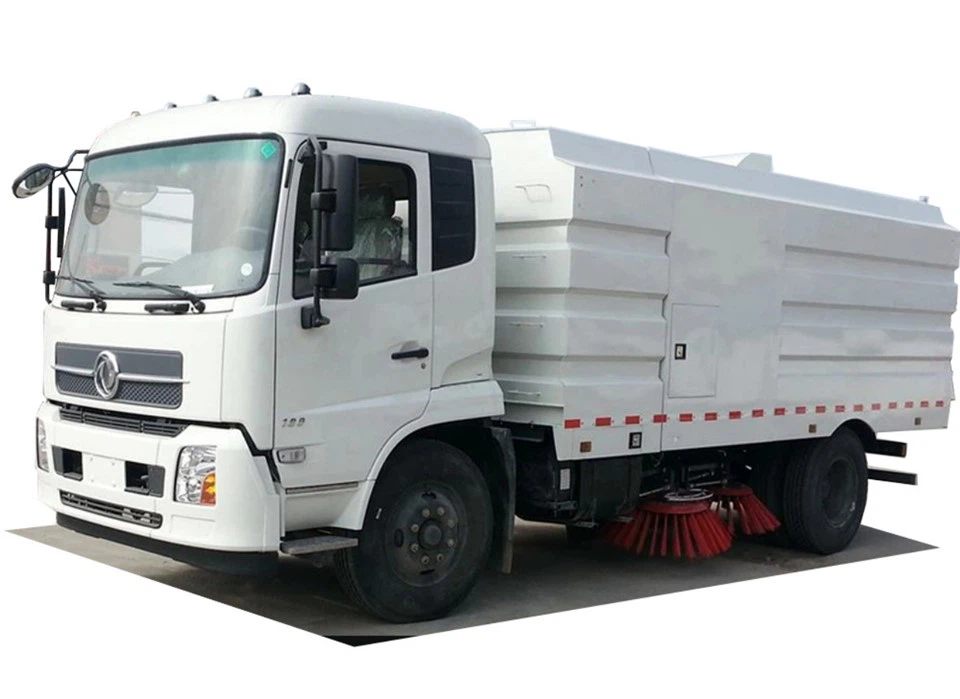Understanding Small Garbage Trucks: A Comprehensive Guide

Introduction

Small garbage trucks play an essential role in municipal waste management and are increasingly used in urban environments. These trucks are designed for efficiency, maneuverability, and accessibility, capable of navigating narrow streets and tight spaces that larger trucks cannot. Whether you are a city planner, a waste management professional, or a homeowner interested in how waste services operate, this article aims to provide an in-depth look at small garbage trucks, their benefits, types, uses, and more. In the following sections, we will explore everything you need to know about small garbage trucks, their importance, and what to consider when choosing one for your needs.
What are Small Garbage Trucks?
Small garbage trucks are specialized vehicles used for collecting waste in urban and residential areas. Unlike standard garbage trucks, which can be large and bulky, small garbage trucks are designed to operate in tighter spaces. They often have a compact design, making them suitable for inner-city collection, alley pickups, and areas with limited access.
Specifications of Small Garbage Trucks
- Length: Typically ranges from 20 to 26 feet
- Width: Generally about 7 to 8.5 feet
- Payload Capacity: Can range from 5,000 to 10,000 pounds
- Engine: Usually equipped with diesel engines or electric options for eco-friendliness
Benefits of Using Small Garbage Trucks
The advantages of utilizing small garbage trucks include:
- Accessibility: Perfect for urban areas with narrow streets or limited access.
- Cost-Effective: Typically more economical to operate and maintain than larger models.
- Environmental Impact: Electric small garbage trucks contribute to reduced emissions.
- Versatility: Can be fitted with different types of bodies for diverse waste collection needs.
Types of Small Garbage Trucks
There are several types of small garbage trucks used in waste collection. Each type serves a specific purpose based on the size and type of waste being collected.
Side-Load Garbage Trucks
These trucks have loading mechanisms on the side, allowing operators to collect waste without leaving the vehicle. This design improves efficiency and safety for workers.
Rear-Load Garbage Trucks
Rear-load trucks are equipped with a rear compartment where waste is manually dumped. These trucks are common in both residential and commercial settings.
Front-Load Garbage Trucks

Front-load garbage trucks come with a loading mechanism at the front. These are primarily used for commercial waste collection, as they are capable of picking up large bins.
Electric Garbage Trucks
Electric small garbage trucks are emerging as a sustainable alternative, featuring battery-powered engines that minimize noise and emissions.
Choosing the Right Small Garbage Truck
When selecting a small garbage truck, several factors must be considered to ensure the vehicle meets the specific needs of your operations.
1. Assess Your Needs
Evaluating the volume and type of waste you typically collect is critical. If you deal with lightweight recyclable materials, a smaller, less powerful truck may suffice.
2. Consider the Operating Environment
Analyzing the geographical area, types of roads, and accessibility will help determine if you need a higher clearance or a more maneuverable vehicle.
3. Budget Considerations
Establish a clear budget, considering both the purchase price and ongoing operating costs. Smaller trucks may have lower fuel and maintenance expenses.

4. Evaluate Environmental Impact
Consider investing in electric small garbage trucks to reduce the carbon footprint, especially if your municipality is aiming for greener waste management practices.
5. Check for Available Features
Look for essential features such as driver comfort, safety technologies, and efficiency enhancements when selecting the ideal small garbage truck.
Operational Tips for Small Garbage Trucks
To optimize the performance and longevity of small garbage trucks, adhere to the following operational tips:
Regular Maintenance
Establish a routine maintenance schedule to ensure the vehicle remains in good condition. Essential tasks include:
- Checking the engine oil and fluid levels
- Inspecting brakes and tires
- Cleaning the truck’s body and interior regularly
Adhering to Safety Protocols
Ensure all operators are trained in safety protocols specific to waste collection, including proper handling of hazardous materials.
Effective Route Planning
Utilize route optimization software to enhance efficiency and reduce fuel consumption. This will lead to quicker collections and lower operating costs.
Driver Training
Invest in proper driver training to make sure all operators are familiar with the truck’s features and safety measures, improving overall work safety.
Comparing Small Garbage Trucks with Larger Models
While small garbage trucks offer unique benefits, comparing them with larger models can provide insight into their respective advantages and suitable applications.
| Feature | Small Garbage Trucks | Larger Garbage Trucks |
|---|---|---|
| Size | Compact and maneuverable | Bulky, require larger roads |
| Payload Capacity | Lower capacity (5,000-10,000 lbs) | Higher capacity (up to 30,000 lbs) |
| Cost | Lower purchase and operation cost | Higher upfront costs |
| Environmental Impact | Many have electric options | Increasingly becoming electric but still mostly diesel |
| Versatility | Effective in urban/rural settings | Ideal for large volume collections |
Future Trends in Small Garbage Trucks
The waste management industry is evolving, and small garbage trucks are not left behind. Here are some notable trends:
Electric Vehicles
The shift towards electric vehicles presents a future where many small garbage trucks will operate on electricity, leading to reduced emissions and lower noise levels.
Smart Technology Integration
Increasing integration of smart technologies such as IoT sensors for tracking and optimizing waste collection routes will provide real-time data for enhanced operational efficiency.
Automation
The potential for automated garbage collection systems can change how small garbage trucks operate. While full automation is still in the early stages, advancements continue to emerge.
Enhanced Recycling Capabilities
As municipalities strive for sustainability, small garbage trucks will increasingly be equipped to handle more specific waste streams, including organic and recyclable materials separately.
Common FAQs About Small Garbage Trucks
What is the average cost of a small garbage truck?
The cost typically ranges from $50,000 to $100,000, depending on the model, features, and manufacturer.
How long do small garbage trucks last?
With proper maintenance, small garbage trucks can have a lifespan of 10 to 15 years.
Are small garbage trucks environmentally friendly?
Many small garbage trucks offer electric options or use cleaner diesel engines, making them more environmentally friendly than traditional larger trucks.
Can small garbage trucks be used for commercial waste collection?
Yes, small garbage trucks can be effectively used for commercial waste collection, particularly in areas with limited access.
What types of waste can small garbage trucks collect?
They can collect various types of waste, including residential trash, recyclable materials, and organic waste, depending on the truck’s configuration.
Do small garbage trucks require special training for drivers?
Yes, drivers should be trained not only in vehicle operation but also in safety protocols specific to waste management.
